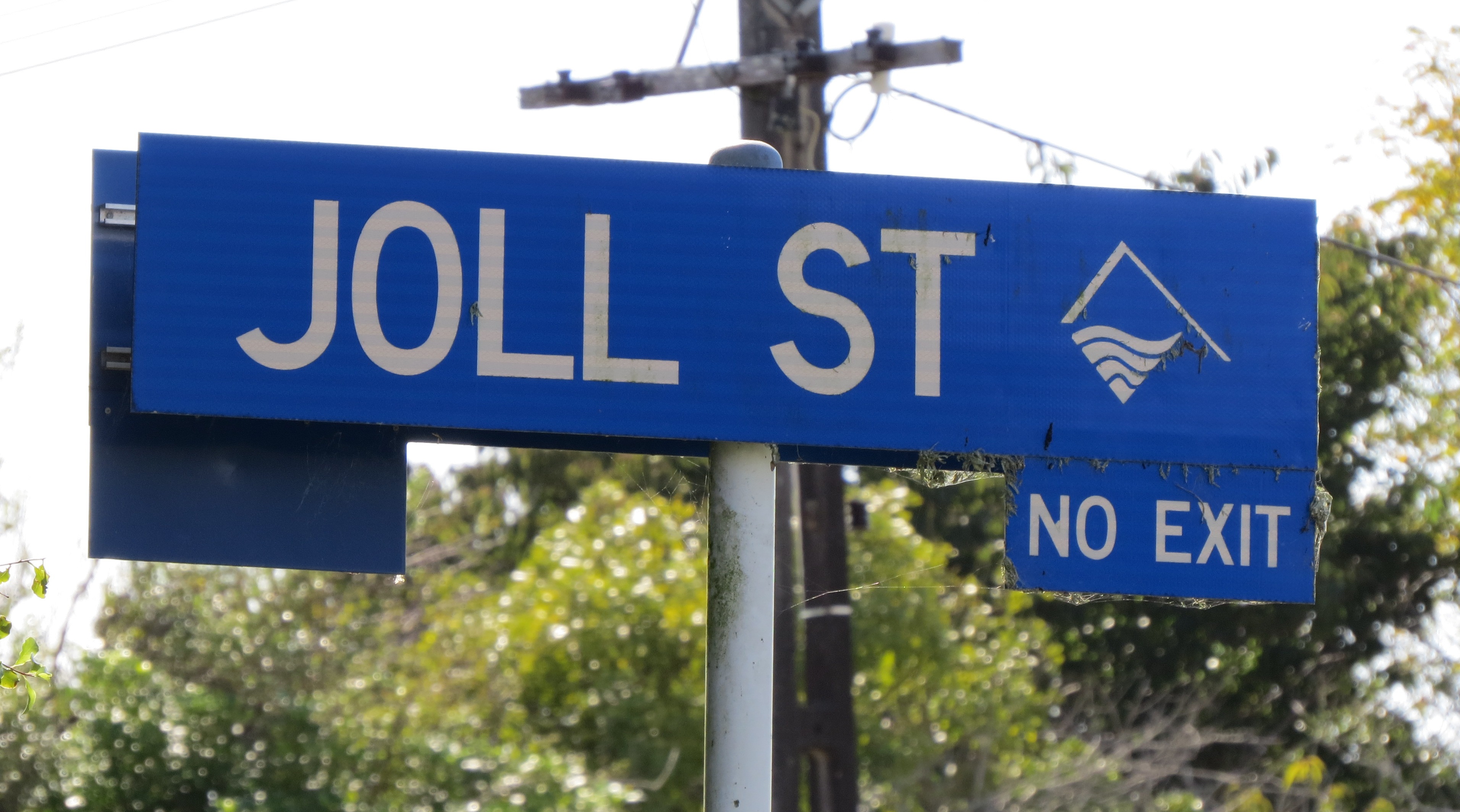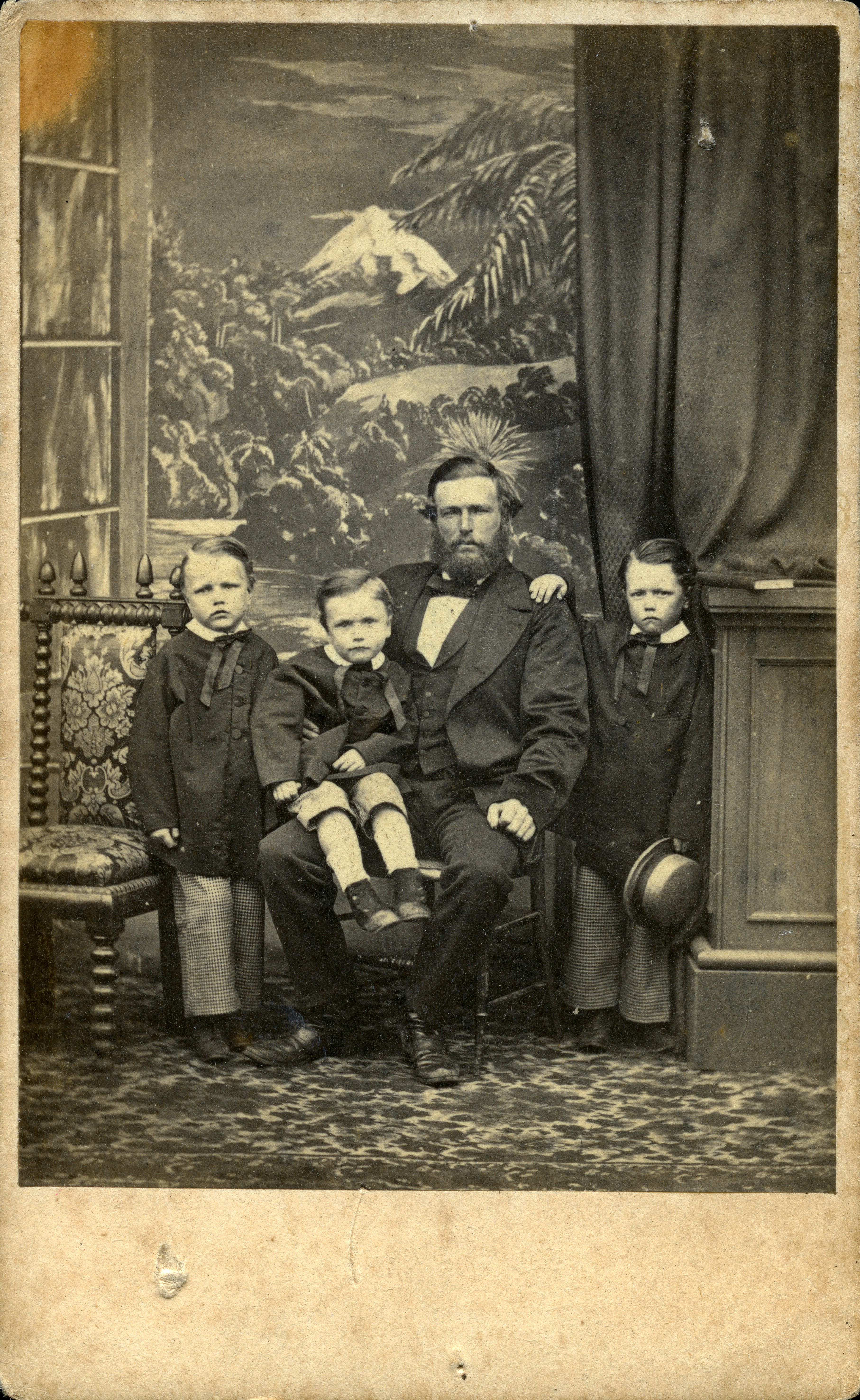



Joll Street, east of the Waitara River, was named after Samuel Joll, the first Pākehā settler to occupy land in that area.
Samuel was born in Cornwall in 1832, the oldest son of blacksmith Samuel Joll Senior and his wife Elizabeth who immigrated to New Zealand with their five children on the Plymouth Company ship Timandra in 1842. The voyage was fraught, with Joll Senior involved in an altercation over conditions on board. The Company insisted that disinfectant be sprinkled around the bunks in steerage but passengers claimed it damaged their clothing. Joll Senior tried to stop the first mate from carrying out this process, claiming he had tried to pull the sheets off Elizabeth who was sick in bed. The men fought and Joll was told to apologise but refused and was placed in irons, to the outrage of the other passengers, until he recanted.
The family were kept busy clearing land they purchased at Ōmata while Joll Senior supplemented his income by improvising one of the earliest wheeled vehicles in town. This small cart or sleigh, pulled by goats, dogs and even younger Jolls, transported cargo to and from the beach including flour from the Alpha Mill for shipping to Wellington.
Samuel Junior tried his luck in the Australian gold rush of the early 1850s, running a business bringing supplies to diggers on the fields using a cart – drawn by bullocks, not goats. He returned to Taranaki and married Elizabeth Jonas in 1857. The couple raised their 13 children on a property named Riverdale on Tikorangi Road.
Samuel served with the Bushrangers during the Taranaki Wars and was awarded a New Zealand Medal for his part in the Battle of Waireka, amongst other campaigns. He later established a butcher shop and bakery in Waitara and became a pillar of the community, serving on the Town Board, toasted at the opening of the first Waitara Bridge in 1872 and hosting meetings of the Waitara Races in a paddock on his farm.
Samuel Joll Junior died a wealthy man in 1899, leaving his family a life insurance policy worth £500 plus land and valuables including “linen, china, glass, books, pictures and furniture” in his will. He is buried at Waitara Cemetery.
This story was originally published in the Taranaki Daily News.
Please do not reproduce these images without permission from Puke Ariki.
Contact us for more information or you can order images online here.